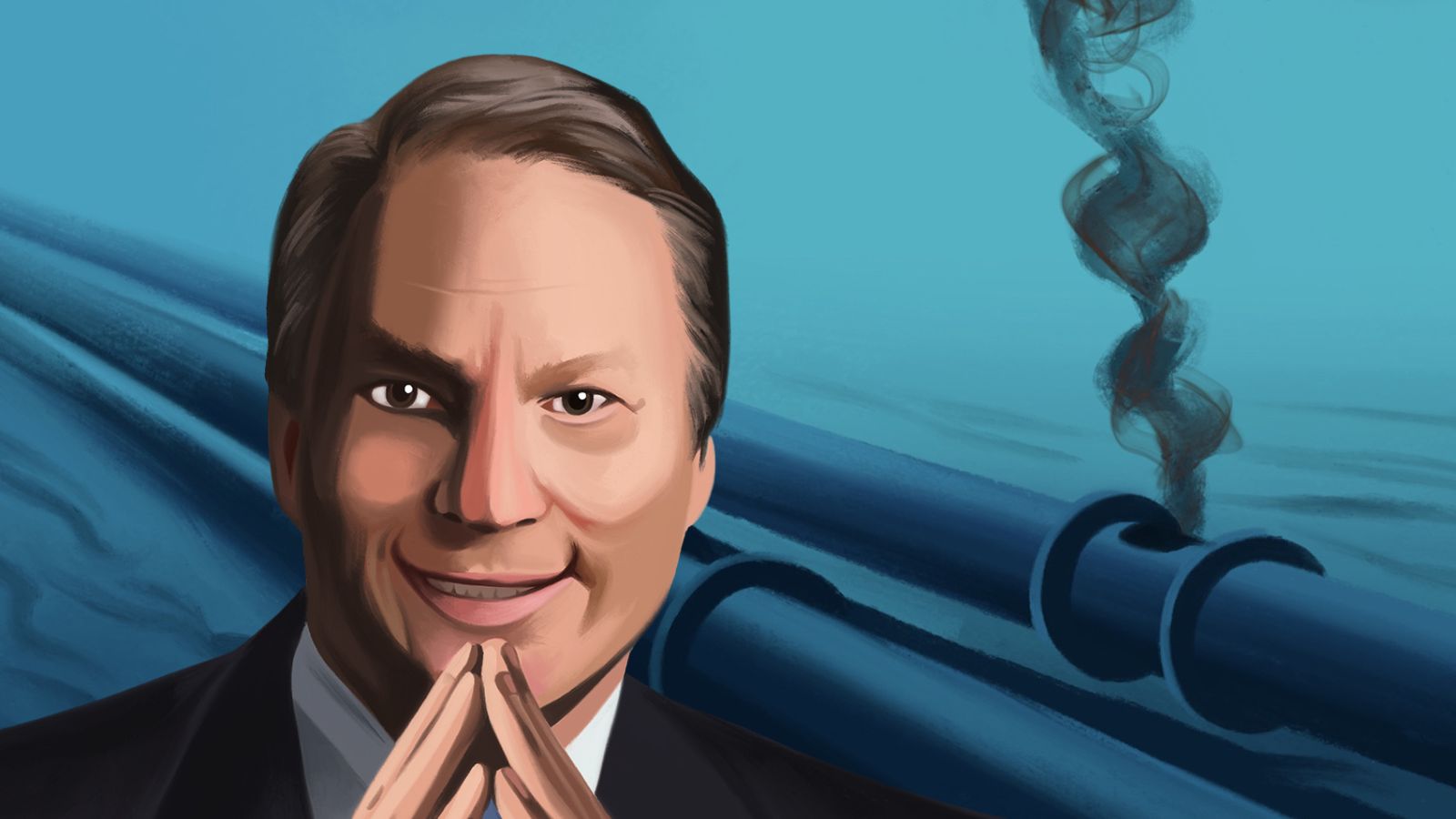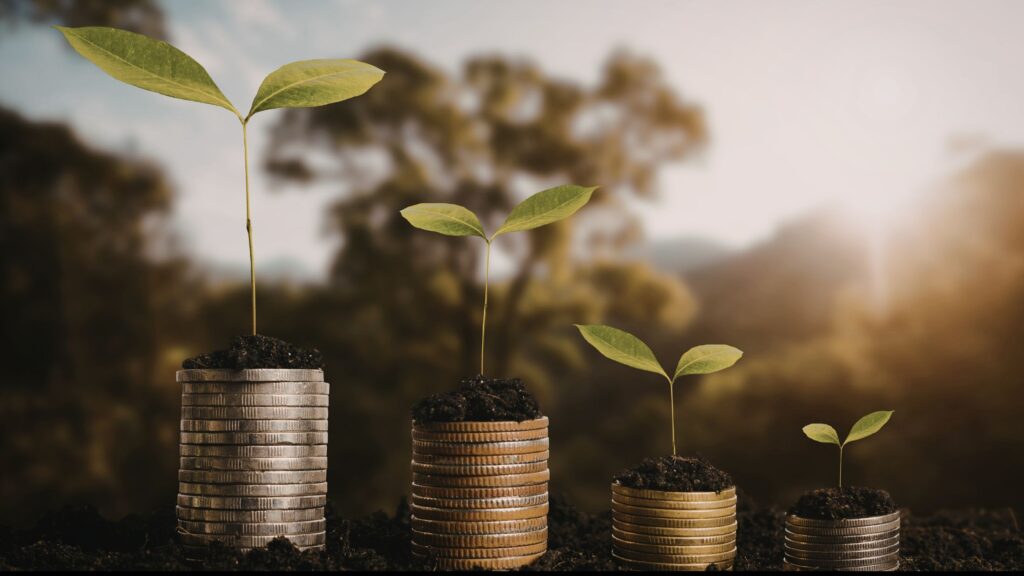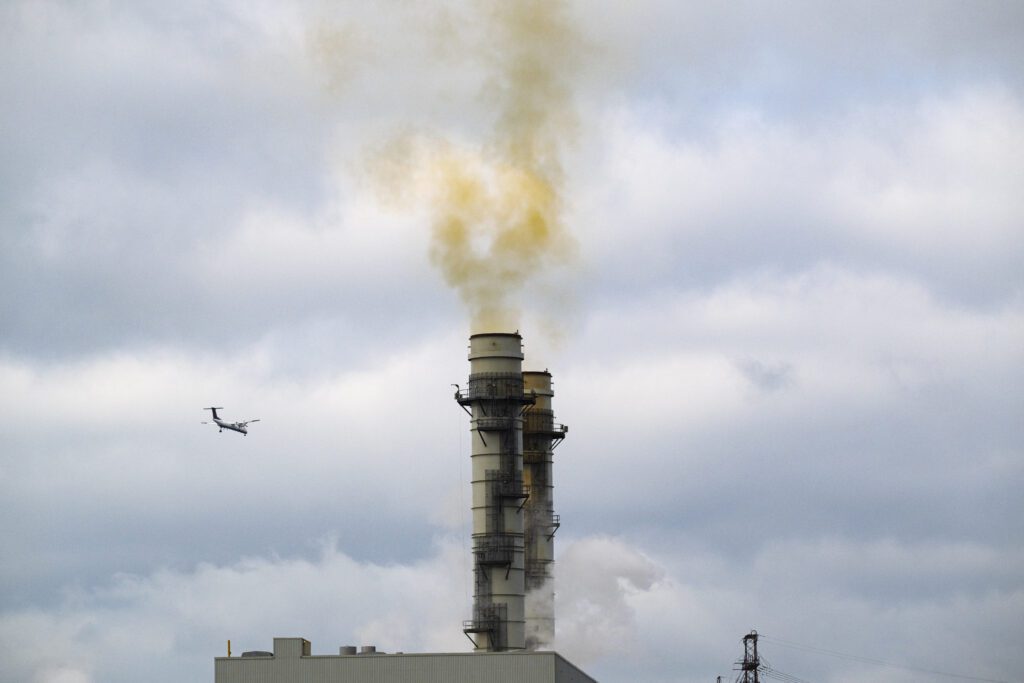We’ve been closely following all the controversy surrounding Enbridge’s greenwashing and price gouging in Ontario, so we knew we had to make some additions to the Climate Villains roster. Welcome Gregory L. Ebel, the CEO of Enbridge, to our list of infamous Climate Villains – powerful people with fossil fuel interests holding Canada back from effective climate action.
If you haven’t heard of Mr. Ebel before, don’t worry; you’re not alone. The executives behind the fossil fuel industry often avoid public scrutiny, which is why we’re shining the spotlight on their activities. We’ve sourced publicly available, factual information on his work history and Enbridge’s activities to compile this satirical resumé for him. Read below for Gregory L. Ebel’s profile, and check out the Climate Villains blog series for the resumés of the other Climate Villains.
Can you help us fight back against the climate villains?
This spring, Environmental Defence Canada submitted a motion to Enbridge shareholders for their 2024 Annual General Meeting on May 8th. The motion asks the company to produce a report examining how Enbridge’s governance systems are functioning. This was done in light of the company’s pattern of releasing statements, reports and submissions that misrepresent the environmental impacts of its business activities. A very reasonable request, we thought. Enbridge, in response, urged its shareholders to vote against the motion.
Join the tweet storm: Let’s call out Enbridge’s inaction and greenwashing.

- Enbridge: 2017-Present
- Spectra Energy Corp: 2007–2017
Spectra is a 2007 spinoff of Duke Energy, acquired by Enbridge in 2017 - Union Gas Ltd: 2005-2007
Union Gas is a former subsidiary of Westcoast Energy, which merged with Duke Energy Corp in 2002 - Duke Energy Corporation: 2002-2005
- Westcoast Energy: 1997-2002
Westcoast Energy was acquired by Duke Energy Corp - World Bank: 1993-1997
- Government of Canada: – 1993
Villain Career Profile
Greg Ebel has been promoting pipelines and preaching about gas for decades. He’s perfected the art of spinning “natural” gas, a fossil fuel, and liquified natural gas (LNG) as transition fuels, despite a thorough debunking. This greenwashing is key so that he – and Enbridge – can continue profiting as Canada’s largest natural gas provider while courting new LNG customers around the world.
“Natural” gas is a fossil fuel that’s bad for the climate and harmful to human health, but you wouldn’t know it from the gas industry’s branding. While “natural” gas is mostly composed of methane, a greenhouse gas that’s 80 times more potent than carbon dioxide during its first 20 years in the atmosphere, Ebel and his industry counterparts have succeeded in minimizing the perception of its climate impact.
Following a stint at the federal government, where he helped work on the privatization of Petro-Canada, Ebel began climbing the corporate ladder in the gas industry. After working with gas companies in Canada and the US that became Enbridge through a series of mergers, he eventually landed the CEO spot at Enbridge at the start of 2023. Once he became president, Enbridge purchased several gas utilities in the US and is now the largest “natural” gas distributor in North America.
Greg Ebel has been vying to expand gas infrastructure in Canada and lock-in our reliance on gas for decades. Recently, Enbridge applied for the Ontario Energy Board to approve a rate hike for its 3.8 million customers in Ontario in order to fund an expansion of its gas network and to ensure all the homes that Ontario is seeking to build will be hooked on gas. Enbridge, with Ebel at the helm, has been misleading Ontarians by telling them that gas is the cheapest way to heat their homes, while evidence shows that heat pumps are the most affordable solution for home heating in nearly all cases. Research shows that Enbridge’s expanded gas network in Ontario would cost the average consumer $10,000 more than a heat pump over the lifetime of the equipment. Despite a complaint filed with the Competition Bureau against Enbridge for its advertising campaign that made false claims about the cost of “natural” gas, Enbridge is committed to branding itself as a sustainable energy company and Ebel is steadfast in pushing Enbridge’s gas network forward.
Just like it’s expanding gas network, Enbridge is also expanding greenhouse gas emissions. New calculations by Investors for Paris Compliance show that Enbridge’s total emissions, including the pollution caused when people use the gas it sells, have gone up by 76% since 2014 to a total of 805 million tonnes. That’s 20 times greater than the company reports, and more than all of Canada’s emissions.
Gregory Ebel doesn’t let bad press get him down. Enbridge has lots of experience being embroiled in controversy in the US: from donating to pro-fossil fuel politicians who have blocked climate action; spending millions on political advertising to influence US elections; creating and funding “astro-turf” groups to support its controversial Line 3 pipeline; and funding police to surveil and arrest activists and Indigenous leaders protesting the pipeline. Just recently, in February 2024, a lawsuit was filed against Enbridge and ExxonMobil, who are accused of an antitrust conspiracy to block a rival Chicago oil terminal.
Mr. Ebel continues to believe in a prosperous future for fossil fuels and his company. That’s why Enbridge continues to operate its leaky Line 5 pipeline, a 70-year-old pipeline running directly through the heart of the Great Lakes. This pipeline is a spill risk to the world’s largest surface freshwater system. There’s been ongoing resistance for years to the pipeline from Tribal Nations across Wisconsin, Michigan and Ontario, and now more than 60 Anishinaabeg Tribes and First Nations are calling for its closure.
TOP SKILLS
CAREER HIGHLIGHTS
 Getting in trouble with the Ontario Energy Board (OEB)
Getting in trouble with the Ontario Energy Board (OEB)
- Enbridge was fined $250,000 in 2022 for failing to meet meter reading standards and inaccurately charging consumers. Despite the OEB review and penalty, complaints to the OEB related to meter reading have more than doubled, from 42 in 2021, to 87 in 2023.
 Cutting jobs to reduce company costs, while profits boom
Cutting jobs to reduce company costs, while profits boom
- In 2024 the company started the year by cutting 650 jobs in a bid to cut costs, despite having just reported $16.5 billion in profits for 2023.
 Strategizing to block the energy transition
Strategizing to block the energy transition
- Enbridge is part of a North American consortium of utilities that actively strategize about how to delay and block electrification, called the Consortium to Combat Electrification.
 Lobbying for false solutions and against the rights of assembly for climate activists
Lobbying for false solutions and against the rights of assembly for climate activists
- Enbridge had 72 lobby meetings with the Canadian federal government in 2023, that’s about twice a week!
- Enbridge lobbied for the expansion of Canadian federal tax credits to include carbon capture projects deployed with enhanced oil recovery – meaning pumping C02 into the ground to get more oil out. They have also advocated for this to the US government.
- In the US, Enbridge lobbied in support of proposed anti-protest bills. The bills shield oil and gas infrastructure and operations from protest and civil disobedience and increases penalties for communities and individuals opposing these projects. Repeated attempts to pass anti-protest legislation in Minnesota during the resistance to Enbridge’s Line 3 failed, but the pipeline was completed in 2021 and 60% of US oil and gas operations are now shielded by these laws.
 Getting governments to do their bidding
Getting governments to do their bidding
- In support of Enbridge’s Line 5 pipeline, the Canadian government invoked an obscure pipeline Treaty that has made it very difficult for the US government to shut the pipeline down
- Senior-level staff in the Ontario Premier’s office and the Minister of Energy’s office were made to burn the midnight oil and fast track legislation that would save Enbridge money while costing ratepayers hundreds of dollars.
The Climate Villains campaign highlights the leaders of the fossil fuel industry that play key roles in expanding and financing climate-wrecking fossil fuels, blocking climate action, and spreading disinformation. These villains are more concerned about their profits and wealth than the future of the planet, and that’s why we’re profiling the ‘resume’ of each climate villain.
We know that government intervention is critical for tackling the climate crisis with decisive urgency and at the scale necessary, so our approach is to put pressure on governments to pass more ambitious climate policies.
While we aim to advance policy that works in the public interest, oil and gas executives, and their powerful allies, are using their political power to block climate action in order to personally profit from more oil and gas production. This is nothing new: these companies have been actively blocking climate policy for decades. Their earlier tactics involved straight-up climate denial, and now they have pivoted to delaying, greenwashing and pushing dangerous distractions. And many people, including those in the government, are falling for it.
That’s why we’ll profile each of the villains, so you can learn more about the tactics they use to delay climate action and what you can do to fight back for real climate solutions.











